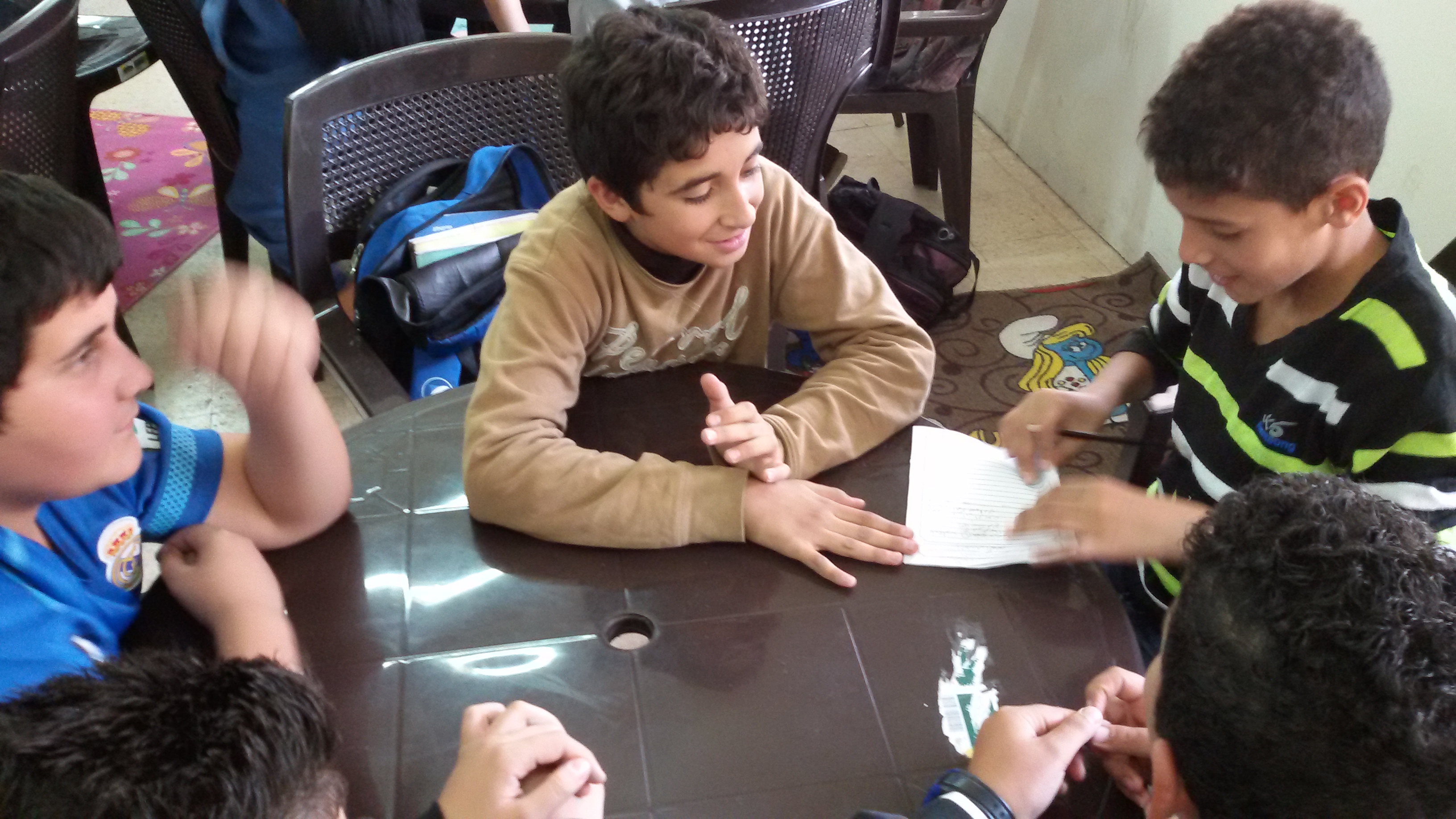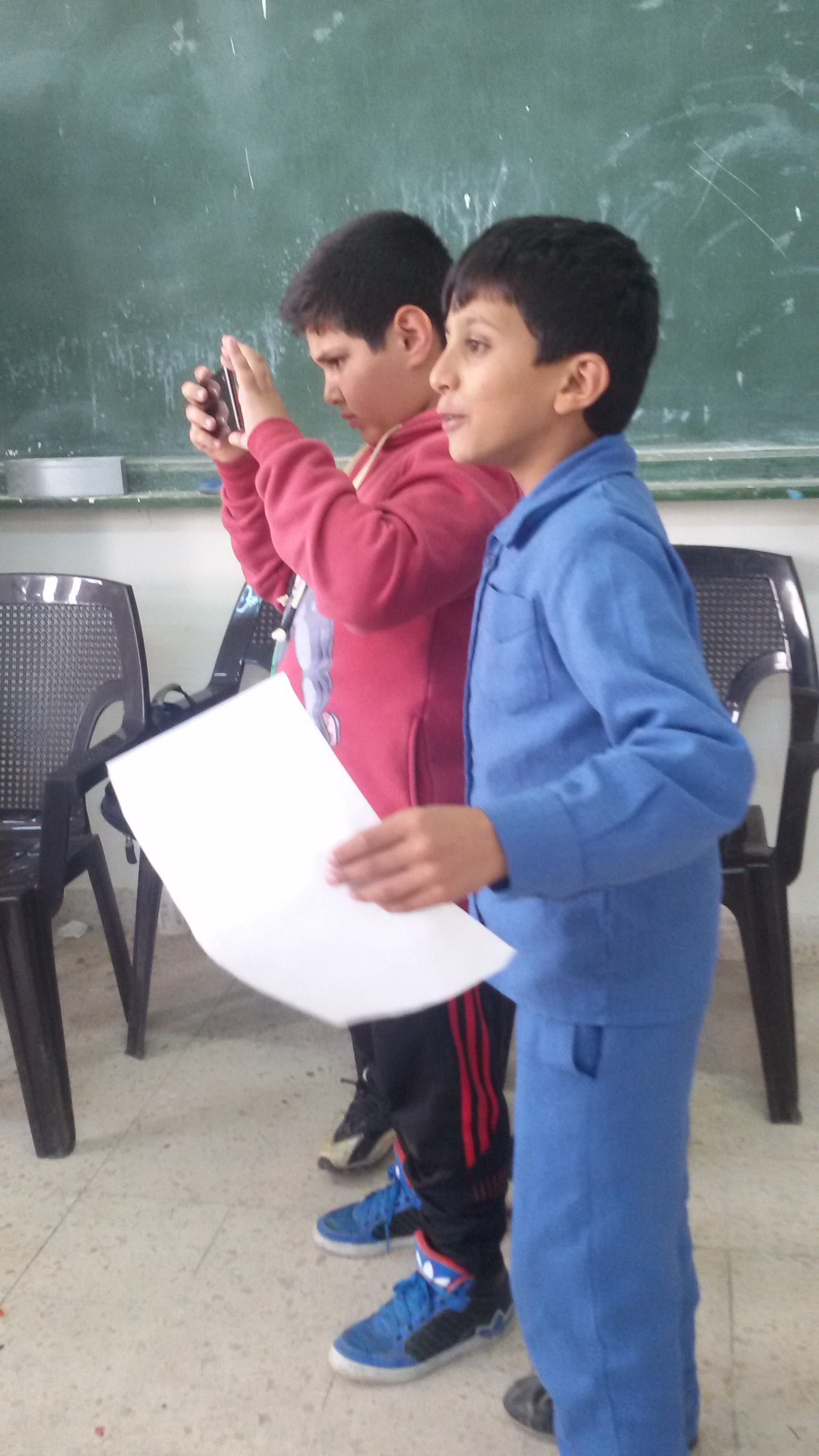SPEAK UP! A Film Project
Schoolchildren from Jordan make the most of their first opportunity to create, write, direct, and act in films about the issues they think are most important.
As part of World Vision Jordan's (WVJ) No Lost Generation: Stand by Me Project (NLG), 20 groups of students from five public schools created, performed and filmed 20 different short films. The NLG project is funded by Global Affairs Canada (GAC).
In total, 125 students aged 10 to 16 years old, were involved in the film activity
In total, 125 students aged 10 to 16 years old, from schools in Ajloon, Jerash and Amman were involved in the film activity, which was organised as part of the project's empowerment programme. The idea was to enable students to speak up and express their opinions by tackling issues and representing them in a creative and informative way to their families and community members.
"It is the first time such an activity in the schools was implemented." Said one of the parents.
During the video screening event in Ajloon, one of the parents who attended this event commented: “The filmmaking activity in the empowerment programme is a self development activity for the students, our children. It is the first time such an activity in the schools was implemented. I was impressed to see the students tackle the topic of verbal abuse in one of the movies.”
The movies spotlighted different issues students had selected in order raise awareness among community members and open up a conversation about solutions. The WVJ team facilitated this activity and allowed children to lead the conversation and express their thoughts. Some of the issues children chose and reflected their own views and opinions, were: child rights, cooperation between family members, children with disabilities, trust, family breakdown, parents’ obedience, domestic violence, the difficulty of immigration, summer break, verbal abuse, reckless adolescents, poverty, discrimination between different nationalities, etc.
Yusra, a student from Amman who directed a movie on Children with Disabilities, said: “My parents were my inspiration as they help the disabled by designing and donating artificial limbs in cooperation with the organisations that are working in this field. And this is how I came up with the idea.”
Another student who wrote the script for the movie on Trust said that the generational gap can make it hard for parents and their children to understand each other. “I wish parents could change their way of thinking. When we were told that our parents would attend the screening we got excited because...they will understand what is going on in our heads.”
World Vision helped students with the process of coming up with the story and filming the movies by teaching them about the steps of storytelling: Look and Think (about the topic they chose), Discuss and Talk (about the topic with other team members and colleagues) and, finally, Write and Present (their own stories through writing the script and filming the movies using a digital camera).
Students were also encouraged to come up with their own stories and work in teams to write the script and assign roles
The WVJ team explained the concept of short movies and listed the roles that people could assume in any movie, such as actors, director, photographer and producer. Students were also encouraged to come up with their own stories and work in teams to write the script and assign roles. According to Bushra, one of the students, “The most important thing is choosing the movie’s title, as it gives a clue to what the movie is all about.”
After finalising the script, assigning roles, and learning basic camera operating and shooting techniques, the groups were ready to film their own movies. This session in particular was very exciting, as most of the students were shooting movies and using digital cameras for the first time in their lives. They were in control and were responsible for their own roles as well as being team players.
the students had the chance to build their confidence and speak up about issues through answering audience questions and discussing the messages of the movies
The empowerment activity continued through holding screening events to showcase and present these movies to other students, caregivers and community members, and generally to get the message out about the ideas that children had chosen. As part of the screening, the students had the chance to build their confidence and speak up about issues through answering audience questions and discussing the messages of the movies. The screening was made even more exciting as audience members were allowed to vote for their favourite movie.
The screening was made even more exciting as audience members were allowed to vote for their favourite movie.
One of the school teachers, Hanan, commented on the discussion and Q&A activity, saying, “I teach these students in classes daily, and I thought I knew them well, yet I was surprised by the kind of creativity and bravery shown during the empowerment programme, which we have never seen before in school.”
Mahmood, who directed and acted in the movie “The Lost Arabs” explained where his idea came from: “An Arab cannot cross the borders of any European country because he is an Arab! And that is what inspired my idea.”
Nawras, who wrote the movie “The Reckless”, said: “Most of the youth in our community think only about entertainment and activities that aren't very useful. I wanted to communicate this important message: No to Drugs, Yes to Communication!”
The process of initiating and implementing the empowerment programme required about six weeks worth of diligent work alongside of children to bring these movies to the screen. Bayan, a teacher, had kind words for the performance and efforts of WVJ, saying “I highly respect the World Vision team. They were so patient and cooperative during the process of the empowerment programme and film shoot.”

